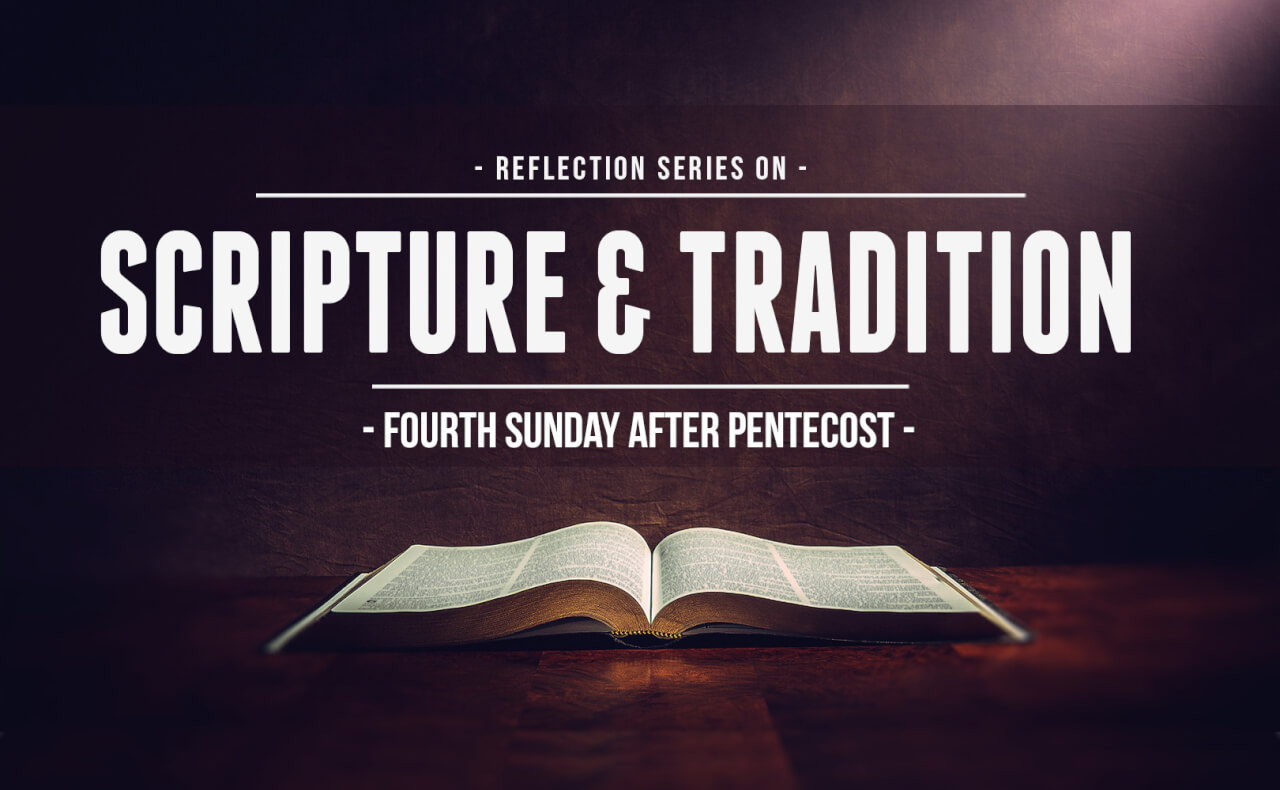Epistle: Romans 8:18-23
Gospel: Luke 5:1-11
Grant us, we beseech Thee, O Lord, that both the course of this world may be peacefully ordered for us by Thy governance, and that Thy Church may rejoice in quiet devotion.
—From the Collect for the Fourth Sunday after Pentecost
Although this Sunday is the Fourth Sunday after Pentecost, for many traditional Catholics, it is the first one labeled “after Pentecost,” as the External Solemnities of Corpus Christi and the Sacred Heart were celebrated on the previous two Sundays. It is useful, then, to remind ourselves what “season” we are in.
Catholics who follow the Ordinary Form calendar are now in “Ordinary Time,” which covers the parts of the liturgical year not included in the three major liturgical seasons (Advent, Lent, and Easter). However, on the Traditional Catholic calendar, we are now in the season “after Pentecost.” This is a reminder that we are to be in a process of continual sanctification, for our growth in holiness is attributed to the Holy Spirit Who came at Pentecost. This is no ordinary time, but instead a time to grow in holiness and virtue.
How do we grow in holiness and virtue? There are many steps, but the one most often avoided is suffering. Suffering is an essential part of growing closer to Christ and being crafted into His image. St. Paul compares the process of sanctification to the work of an athlete:
Know you not that they that run in the race, all run indeed, but one receiveth the prize? So run that you may obtain. And every one that striveth for the mastery, refraineth himself from all things: and they indeed that they may receive a corruptible crown; but we an incorruptible one. I therefore so run, not as at an uncertainty: I so fight, not as one beating the air: But I chastise my body, and bring it into subjection: lest perhaps, when I have preached to others, I myself should become a castaway. (1 Cor. 9:24–27)
We must “chastise the body” in order to obtain the crown that awaits us. But in today’s Epistle, the apostle reminds us that our sufferings, while difficult to endure, “are not worthy to be compared with the glory to come that shall be revealed in us.” Our sufferings, in fact, will eventually lead us to our “adoption as sons of God” and the “redemption of our body.” As St. John Chrysostom wrote, “[e]ven if each day we suffer death, something which nature could not endure even if mind overcomes matter … what we endure is nothing compared to the good things we are destined to receive or the glory due to be revealed on our behalf” (Homilies on Genesis 25.23).
In today’s Gospel, we see two other important aspects of growing in holiness: obedience and humility. St. Peter, an experienced fisherman, is told by a carpenter how to fish. But it is not just any carpenter; it is Jesus Who commands. So Peter obeys, simply because he trusts the word of the Lord. And not only do they catch fish, but it is “a very great multitude of fishes,” causing their nets to break.
In this Gospel, Peter’s humility — which is often hidden behind his bluster — shines forth. He not only obeys when the command seems useless, but also responds to the haul of fish by recognizing Christ’s purity and divinity. He says, “Depart from me, for I am a sinful man, O Lord.” Peter knows the truth that the Lord would one day reveal to St. Catherine of Siena: “You are [he] who is not; whereas I am He who is.”
On the road to holiness, we must endure suffering, obey the Lord, and have deep humility. Under our own power, these things are impossible, but with the Holy Spirit’s help, each one of us can be sanctified and receive the “glory that is to come.”


